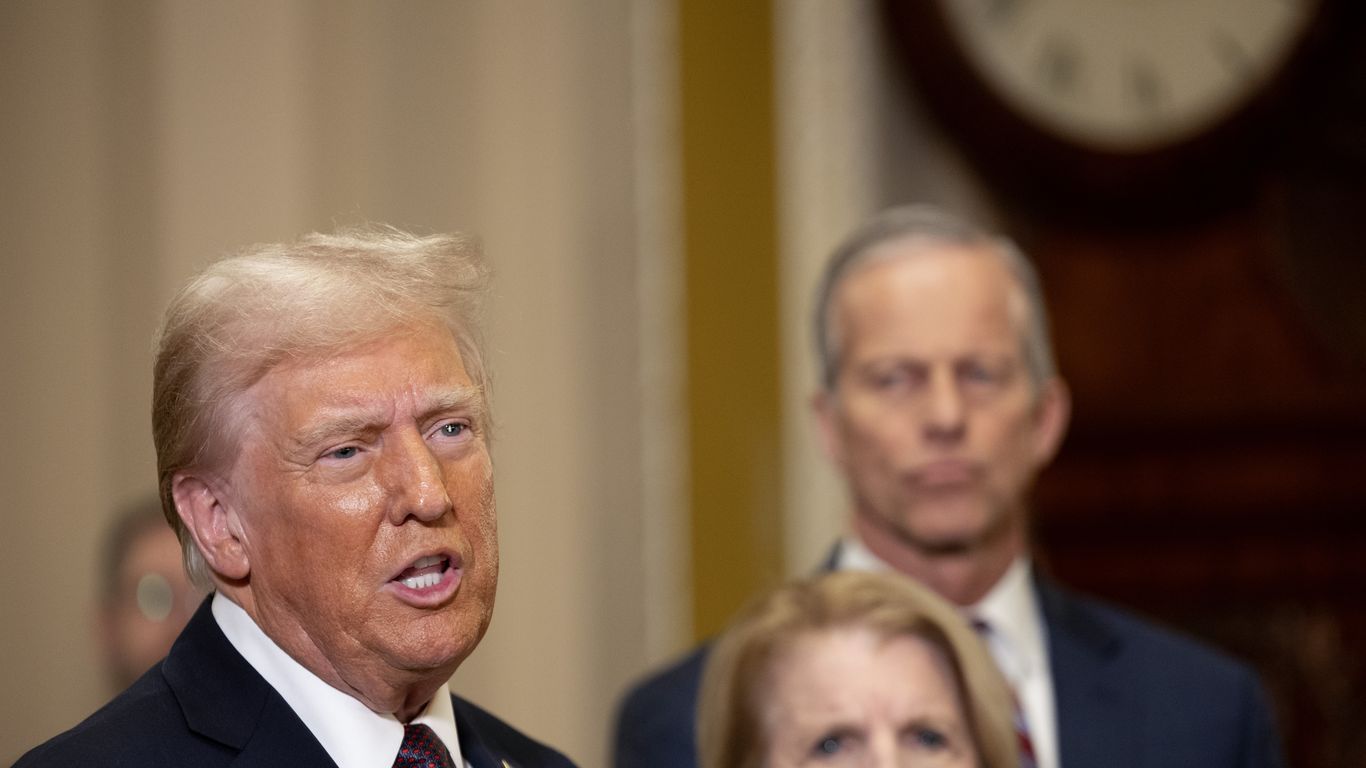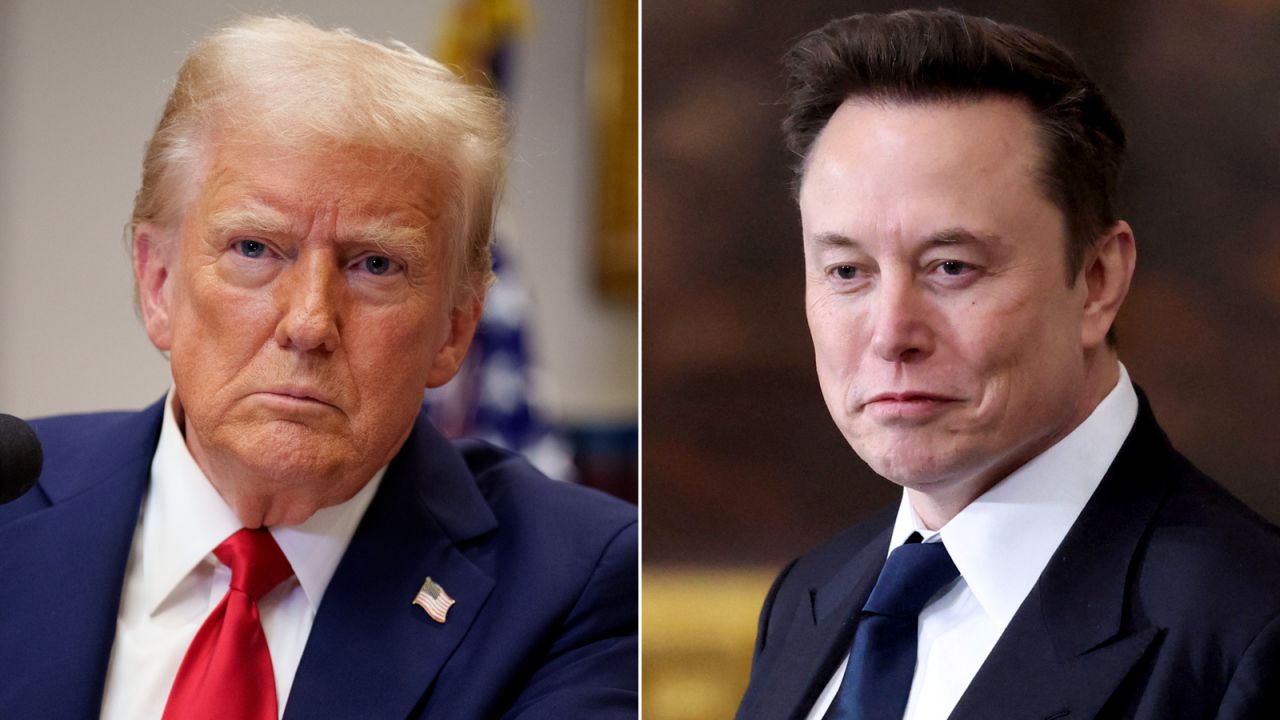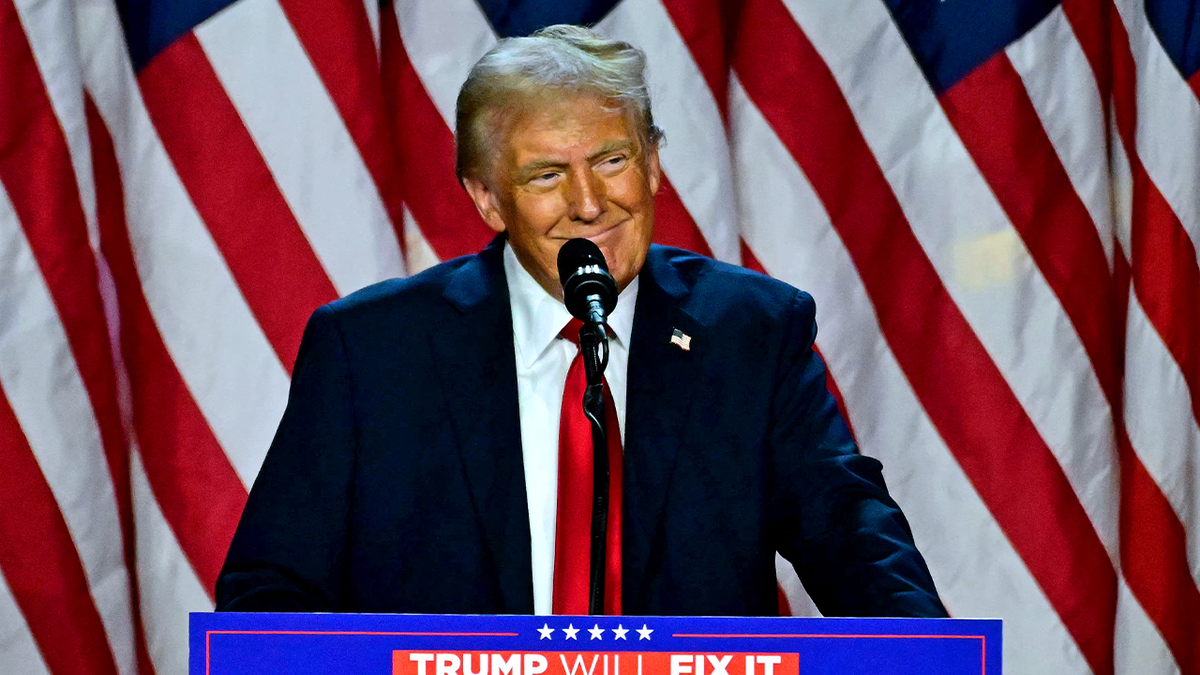Vote-a-rama: A Crucial Moment for the Megabill

Introduction
The Senate is currently in the middle of a marathon session known as "vote-a-rama," the last hurdle before the approval of the megabill. This is a crucial moment for the Trump administration, as they hope to push their tax bill through to passage despite divisions within the Republican party.
Background
The controversial "current policy baseline" accounting tactic is the first item up for vote during the vote-a-rama. This tactic has been a point of contention between Republicans and Democrats, with the former arguing that it is necessary to accurately portray the effects of the tax bill on the national debt, while the latter claims it is a misleading tactic used to make the bill appear more favorable. This vote will set the tone for the rest of the vote-a-rama and could potentially make or break the success of the megabill.
Current Scenario
Despite the running tensions between Republicans and Democrats, the House of Representatives is determined to push the tax bill through this week. President Trump himself has been actively trying to shore up support for the bill, hoping to have it on his desk by the Fourth of July. The urgency to pass this bill is evident in the fact that it would add $3.3 trillion in new debt, according to the Congressional Budget Office's projections. This is substantially more than the House-passed version, causing concern among both parties.
The Senate Republicans are aiming to vote on the bill on Monday, with their sights set on passing it before the holiday recess. However, with the CBO projections showing a significant increase in the national debt, this could prove to be a difficult task. The Washington Post reports that the legislation would cause the national debt to soar even more than previous estimates, further adding to the already existing divisions within the Republican party.
Conclusion
The vote-a-rama is a crucial moment for the megabill, and the outcome of the Senate vote will have a significant impact on the future of the Trump administration's agenda. With the controversial "current policy baseline" tactic at the forefront, tensions are high and the success of the bill is uncertain. As we await the results of the vote, all eyes are on the Senate and the future of the megabill hangs in the balance.
About the People Mentioned
President Trump
Donald John Trump, born June 14, 1946, in Queens, New York, is an American businessman, media personality, and politician who has served as the 45th and 47th president of the United States. He graduated from the University of Pennsylvania's Wharton School with a degree in economics in 1968 and took over his family’s real estate business in 1971, renaming it the Trump Organization. Over decades, he expanded the company’s holdings into skyscrapers, hotels, casinos, and golf courses, building a high-profile brand often associated with luxury and real estate development. Trump also gained fame as the host of the reality TV show *The Apprentice* from 2004 to 2015[1][3][7]. Trump entered politics as a Republican and won the presidency in 2016, defeating Democrat Hillary Clinton in an unexpected victory. His tenure from 2017 to 2021 was marked by significant policy shifts, including tightening immigration controls, imposing a travel ban on several Muslim-majority countries, expanding the U.S.–Mexico border wall, rolling back environmental regulations, implementing major tax cuts, and appointing three Supreme Court justices. His foreign policy included withdrawing the U.S. from international agreements on climate change and Iran’s nuclear program, and initiating a trade war with China. Trump's handling of the COVID-19 pandemic was widely criticized for downplaying the virus's severity. After losing the 2020 election to Joe Biden, he challenged the results, culminating in the January 6, 2021, Capitol attack. Trump was impeached twice but acquitted both times by the Senate[1][2]. In a historic political comeback, Trump was re-elected and inaugurated for a second non-consecutive term on January 20, 2025, becoming the oldest president to assume office at age 78. He remains a highly influential and polarizing figure in American politics[2][7]. Trump is married to Melania Trump, with whom he has one son, Barron, and has four adult children from previous marriages. He has authored several books, including *The Art of the Deal*, a business bestseller[3][5][7].
About the Organizations Mentioned
Senate Republicans
The **Senate Republicans** are the members of the Republican Party serving in the United States Senate, currently holding the majority in the 119th Congress (2025–2027) with 53 seats out of 100. This majority status gives them control over Senate leadership, committee chairmanships, and legislative agenda-setting[4][6]. The Senate Republicans play a critical role in shaping federal legislation, particularly in areas impacting business and technology, such as tax policy, regulatory reform, and judicial appointments. Historically, the Senate Republican Conference has been a key force in U.S. politics since the party's founding in the 1850s, influencing major national policies and governance. In recent decades, their influence fluctuated with electoral dynamics but notably regained Senate control following the 2024 elections, where Republicans secured a three-seat majority, marking a significant political shift that also includes control of the House and the presidency, enabling a unified Republican government for the first time since 2017[2][6]. The leadership structure within Senate Republicans includes the Senate Majority Leader, currently Senator John Thune, who manages the legislative calendar, coordinates with committees, and serves as the chief spokesperson for Senate Republicans. The Assistant Majority Floor Leader or Republican Whip supports vote counting and party discipline, essential for advancing the Republican legislative agenda[1][7]. Senate Republicans also hold key committee leadership roles, such as the Finance and Judiciary Committees, which are influential in shaping policies on taxation, healthcare, technology regulation, and judicial appointments—matters closely watched by the business and tech sectors[3]. Their current agenda is expected to focus on economic growth, job creation, regulatory reform, and constitutional issues, which are crucial for industries navigating federal policy. The Republican majority’s control over committees enhances their ability to influence legislation and oversight, impacting sectors like technology, energy, and finance. This strategic position requires strong coordination within the party and with external stakeholders, including businesses and lobbyists, to effectively drive legislation aligned with
House of Representatives
The **United States House of Representatives** is the lower chamber of the U.S. Congress, established by the Constitution in 1789 as part of the federal legislative branch. It works alongside the Senate to draft, debate, and pass federal laws, with legislation requiring approval from both chambers before reaching the president for signature or veto[1][2][4]. The House is unique in its authority to initiate all revenue-related bills, impeach federal officials, and elect the president if no candidate gains an Electoral College majority[1][3]. Comprising 435 voting members apportioned based on state populations, the House reflects the principle of proportional representation. Members serve two-year terms, ensuring responsiveness to the electorate and frequent accountability[1][3]. Representatives must be at least 25 years old, U.S. citizens for seven years, and residents of their elected states[3]. The House also includes nonvoting delegates representing U.S. territories and the District of Columbia[3]. Leadership in the House centers on the **Speaker of the House**, who presides over sessions, manages legislative priorities, and is second in line to the presidency. The majority party controls key leadership roles, including majority and minority leaders and whips, which coordinate party strategy and legislative agendas[2][6]. The House operates largely on a majority-rule basis, enabling relatively efficient passage of legislation compared to the Senate’s more individual senator-driven procedures[6]. Historically, the House has been a critical arena for shaping national policy, reflecting the people's will directly through frequent elections and district-based representation. Its committee system facilitates detailed legislative review, and its evolving leadership roles have enhanced its influence on governance and policy[4][6]. For business and technology sectors, the House plays a vital role in passing laws affecting commerce, innovation, taxation, and regulation, thereby shaping the economic and technological landscape of the United States[1][4]. Its legislative actions on technology policy, intellectual property, cybersecurity, and digital market
Washington Post
The Washington Post is a leading American daily newspaper headquartered in Washington, D.C., known for its influential political reporting and broad national audience. Founded in 1877 by Stilson Hutchins, it initially struggled financially and editorially until 1933, when financier Eugene Meyer purchased it out of bankruptcy and revitalized its reputation. The paper’s guiding principle, established by Meyer, was to "tell ALL the truth so far as it can learn it," setting a standard for rigorous journalism[1][2][4]. Under the leadership of the Meyer-Graham family—particularly Philip Graham, Katharine Graham, and later Donald Graham—the Post became a dominant force in American journalism. It expanded by acquiring rival publications and became Washington's principal morning newspaper, eventually holding a near-monopoly status in the region[1][4]. The paper gained international prominence for its pivotal role in publishing the Pentagon Papers in 1971, which exposed government deception regarding the Vietnam War, and for investigative reporting by Bob Woodward and Carl Bernstein during the Watergate scandal, which led to President Richard Nixon’s resignation in 1974[2][5]. The Post has earned 76 Pulitzer Prizes, ranking second only to The New York Times, and is regarded as a newspaper of record in the United States. Its journalists have received numerous prestigious awards, including Nieman Fellowships and White House News Photographers Association honors, reflecting its commitment to excellence in political and investigative journalism[2][5]. In 2013, the Graham family sold The Washington Post to Jeff Bezos, founder of Amazon, for $250 million, ushering in a new era focused on digital innovation and expanding its digital subscriber base, which reached 2.5 million by 2023. Despite a decline in print subscribers to below 100,000 by 2025, the Post remains a key player in business and technology news, maintaining foreign bureaus in London and Seoul to provide comprehensive global coverage[2]. Notable for its histori
Congressional Budget Office
The **Congressional Budget Office (CBO)** is a nonpartisan federal agency established in 1974 by the Congressional Budget Act to support Congress in budget and economic policy matters. Its core mission is to provide objective, impartial, and professional economic and budgetary analysis to help lawmakers make informed decisions about fiscal policy. The CBO serves as an independent alternative to the executive branch’s Office of Management and Budget, ensuring Congress has its own reliable data and projections[1][2][3][7]. CBO’s primary responsibilities include producing formal cost estimates for nearly every bill approved by congressional committees and publishing key reports such as the annual *Budget and Economic Outlook*. This flagship report offers baseline budgetary and economic projections over a 10-year horizon, assuming current laws remain unchanged. The agency also conducts analyses of the economic impacts of proposed federal spending and tax policies, aiding Congress in understanding long-term fiscal effects and budget deficits[1][3][5]. Since its inception, the CBO has become a critical institution in the U.S. budget process, recognized for its rigorous methodology and nonpartisan stance. It employs experts in economics and public policy who draw on a wide range of data, forecasting models, and external expert advice to maintain accuracy and credibility. The agency has adapted to the digital age by enhancing its publication and digital media divisions to better communicate its findings to both legislators and the public[3]. Currently, the CBO continues to provide vital analysis amid complex economic conditions, such as assessing the federal deficit, tax revenue changes, and spending trends. It remains strictly neutral, never making policy recommendations, but offering transparent methodologies that underpin its analyses[5][7]. For stakeholders in business and technology news, the CBO’s work is essential for understanding how fiscal decisions may influence economic growth, innovation funding, and federal investment priorities.











